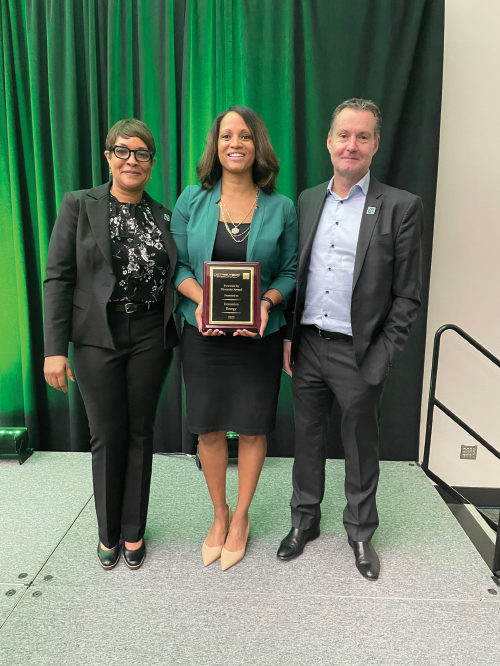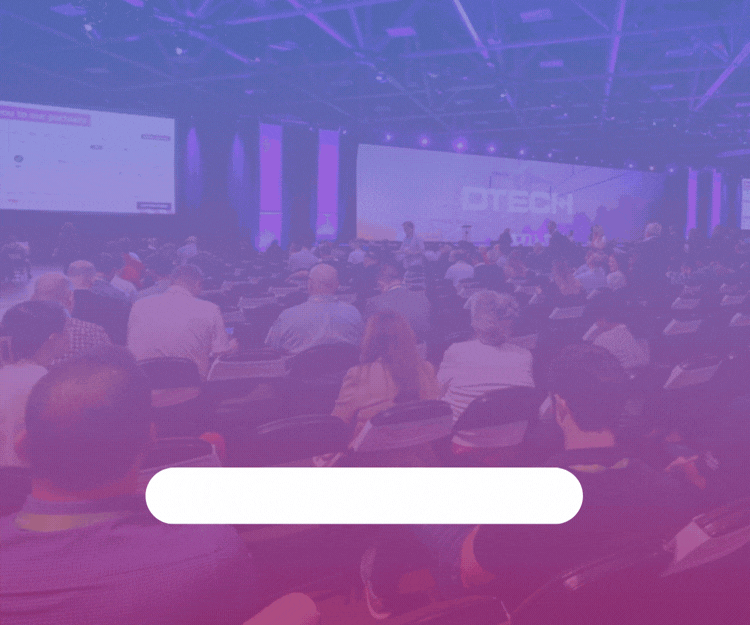
DISTRIBUTECH International is considered the leading annual T&D industry event. With 17,000 attendees and more than 500 exhibitors, DISTRIBUTECH 2023 broke a record. Even with so many booths and various groups gathered to share or see the latest industry innovations, it was relatively easy to navigate the exhibit floor. This year, the exhibitors seemed to have upped their game. Several booths featured demonstrations of the latest solutions that are moving the industry further toward grid modernization. The event also introduced a few new features.
Not only were the Smart Zone and EV Zone new to DISTRIBUTECH, but this year, the conference also debuted the first Powered by Diversity Luncheon & Award program. Sponsored by S&C, the luncheon included a panel of industry leaders, who discussed diversity in the workplace and shared best practices for diversity, equity and inclusion (DEI) programs.
While DEI is not a new concept, more companies have recently begun embracing DEI programs. For those unfamiliar with DEI, the DISTRIBUTECH website defines it this way: “DEI in the workplace is more than policies, programs or headcounts. Equitable employers outpace their competitors by respecting the unique needs, perspectives and potential of all their team members. As a result, diverse and inclusive workplaces earn deeper trust and more commitment from their employees.”
For years, it has been known that a high percentage of the workforce is over the age of 50, which means the utility industry must fill the gaps left as more of these older workers retire. To draw younger, experienced industry professionals, organizations must offer competitive benefits and a culture that provides all of the tools that job seekers look for when deciding which companies have the best working environment. So, while some may see DEI programs as the latest trend, whether or not a company has a DEI strategy has become a key differentiator for businesses that are trying to attract a talented pool of prospective employees.
Signifying the importance of integrating DEI into a company’s strategy, a 2019 ZipRecruiter survey found that 86% of job seekers said it is somewhat or very important that companies have a diverse workforce. And according to a 2022 survey conducted by GoodHire, a provider of employment background screening services, 81% of workers surveyed said they would leave their job if their employer lacked a commitment to DEI in the workplace.
As GPS Insight General Manager, Field Service Management Steve Mason points out in this issue’s Grid Transformation Forum, a company’s sustainability practices are another component that younger generations of jobseekers consider before applying for a job. According to Mason, both how a company treats its employees and whether the company considers sustainability a priority may also be factors that investors consider before investing in a company.

From left to right: S&C CHRO, Felicia Kohlenberger, Powered by Diversity award winner representing Dominion Energy, Latoya Asia, Director - Talent Acquisition, Workforce Planning, DE&I, and S&C CEO Anders Sjoelin. Image credit: S&C
Mason begins his article by saying, that there was a time when “environmental, social and governance (ESG) standards were merely a public relations tactic, but this has changed immensely in recent years. Today, these standards are a symbol of organizational proficiency. As such, they are a vital part of a company’s long-term competitive achievements. Investors are well aware of this and are increasingly attracted to investing in companies that treat their employees fairly but operate ethically and make significant pledges toward sustainability.”
In The Bigger Picture section of this issue, Katie Mehnert, who is the founder and CEO of ALLY Energy, points to some of the softer skills that will prepare younger generations for the jobs left by retiring utility workers.
While STEM programs help create a talent pool of future industry workers, there are other factors companies must look at. “Some of the most crucial skills of today’s workplaces are communication, leadership, people management, creativity, empathy, critical thinking, and social awareness,” explains Mehnert. “These are human skills, and no amount of artificial intelligence will allow machines to take over anytime soon. Energy needs these as much as any other industry.”
Addressing the need for grid modernization and resiliency, shoring up cyber security protocols and establishing a bench of talented workers ready to fill the deficit left by a retiring workforce are only a few of the challenges the electric energy sector continues to face. Our goal at EET&D is to provide the information and tools that will help utilities and the rest of our industry partners effectively meet those challenges. We recognize the value of industry events like DISTRIBUTECH, along with the invaluable education we receive and the connections we make at them. We are also grateful for the insight that our subject matter experts bring to this publication to help us reach that goal.
If you would like to contribute an article or if you have an idea about interesting technology, solutions, or suggestions, please email me at: Elisabeth@ElectricEnergyOnline.com
Elisabeth







